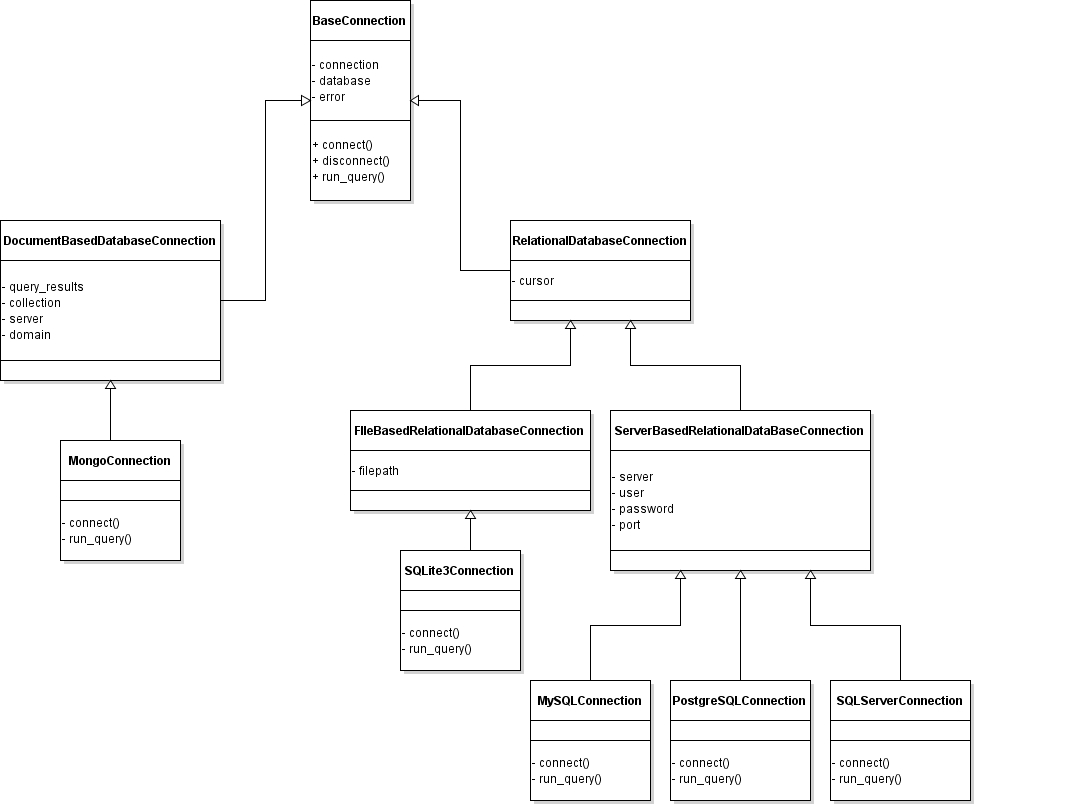Hello everyone. I am currently making some database connection modules in Python inb order to learn Python's approach to OOP and also to lear how to connect to databases via Python. I successfully made a package with modules for postgres, mysql, sqlite3, and MongoDB. The classes simply connect, disconnect and run queries of any type. Everything is working fine now.
However I noticed that the code is nearly the same. For example, the connect and disconnect methods are exactly the same. Also, postgress and mysql connections have exactly the same number of attributes. Inheritance came to mind, but some classes have less attributes. For example, my sqlite3 class has less attributes because this connection doesn't care about server, port, username or password.
So, what should I do? I can use inheritance but how do I remove the unwanted attributes? Should I make an abstract class stating the methods (they are nearly the same for all subclasses) but no attributes?
